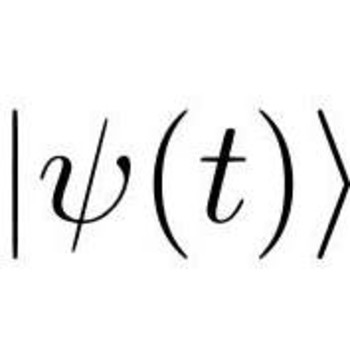A mutation can affect which of the following..?
a
a nucleic acid
b
an amino acid
c
an allele
d
RNA
e
a,c and d
f
a and c
g
all of the above
a
a nucleic acid
b
an amino acid
c
an allele
d
RNA
e
a,c and d
f
a and c
g
all of the above
3 Answers
A Mutation is a change in the genetic info contained in DNA.
As the info held within DNA is transcribed into (messenger-)RNA, this will be affected too.
Both are nucleic acids, so **a ** is certainly true.
Regarding b: an AA (amino acid) itself is not prone to mutation, therefore not true..
(However, a mutation in the genetic code can result in a different AA being incorporated in the protein being coded for by the Nucleic Acids. As a molecule however, the AA is not mutated.)
c: an allele: this is just a variant of a given gene, so being basically a different sequence in DNA: yes, of course it can be affected.
d: RNA, like DNA, is a nucleic acid, so: yes, true .
Regarding e/f/g:
As a, c and d are true (and b is not), the answer is e....
e)
Explanation:
Since a mutation changes the DNA structure, it certainly will affect a nucleic acid, so a) is correct.
Since an allele is just a variation of a certain gene, and mutation can also change genes, c) will also be correct.
Since DNA can be transcripted into RNA, if a DNA strand gets damaged with mutation, it will affect the desired result of the RNA, so d) is also correct.
Since a), c), and d) are correct, and not the other ones, then our final answer is e).
The answer is
Explanation:
A mutation affects nucleic acids because they can alter the genetic code, meaning the sequence of nucleotides. This alteration can change the amino acid sequence for a protein. This can result in a partially functioning, or completely non-functioning protein, or the complete absence of the protein. This can result in a genetic disorder.
An example is sickle cell anemia, which is a genetic disorder in which one nucleotide in the gene for one part of the hemoglobin molecule is substituted for another. This base substitution causes a change in one amino acid in the hemoglobin molecule, which results in red blood cells that are sickle shaped and rigid.
This disorder causes a difficult life for those affected. It shortens life-span, causes severe pain, requires blood transfusions, and causes life-threatening sickle crises, and other difficulties. The average life-span of a person with sickle cell anemia is from the early to late 40s in developed countries.
The correct DNA codon in the gene for hemoglobin is GAG. In tRNA, it is also GAG, and codes for the correct amino acid glutamate (glutamic acid). The mutated DNA codon is GTG. In tRNA, it is GUG, which codes for the amino acid valine. This one base substitution creates an abnormal hemoglobin molecule, resulting in the genetic disorder sickle cell anemia.
 )
)
 )
)



